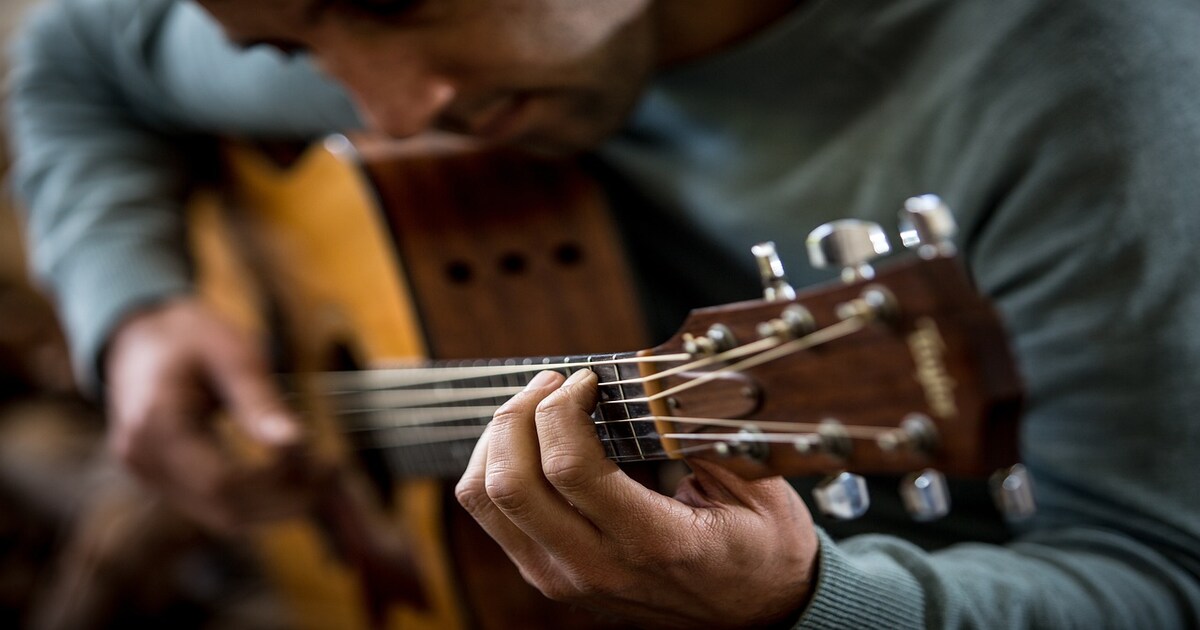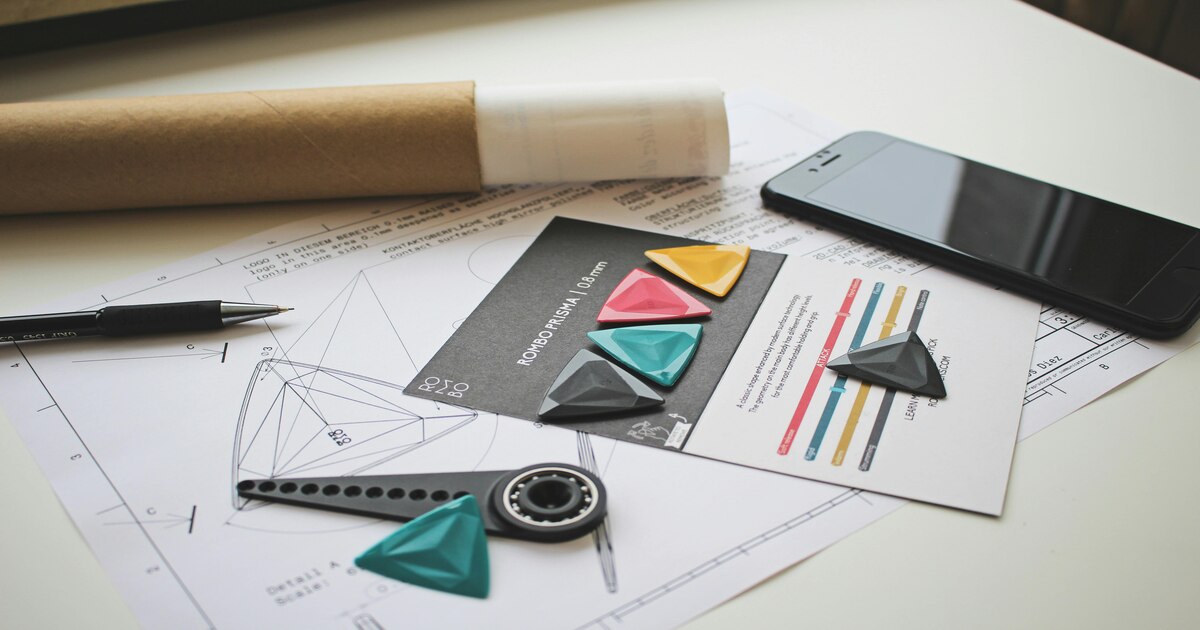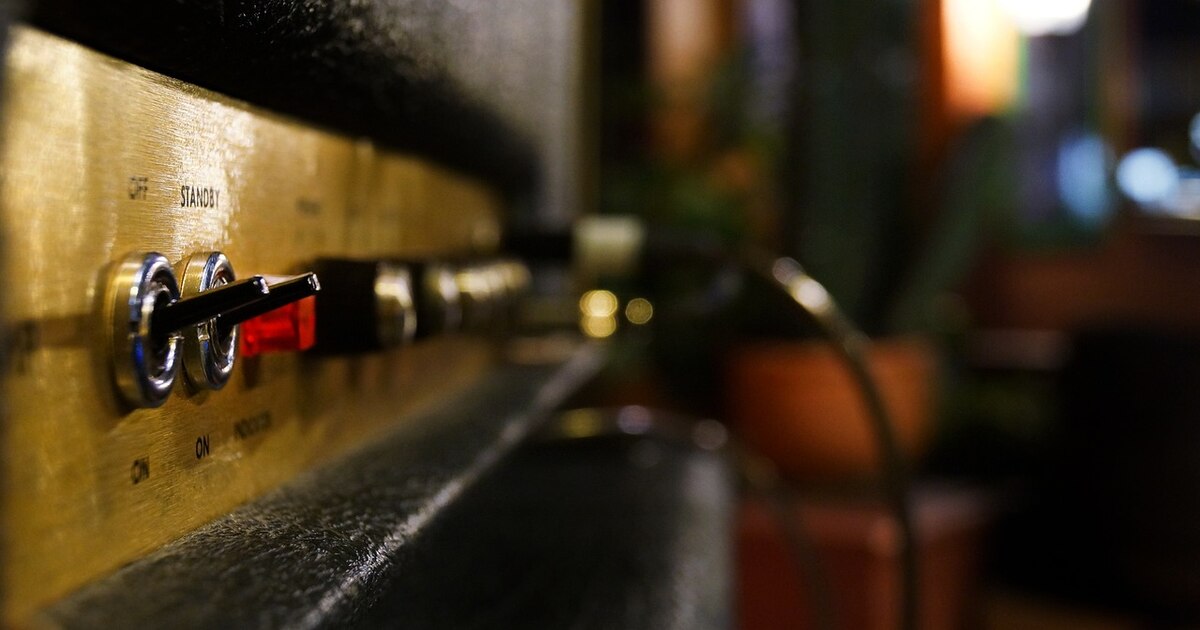13 Essential Guitar Accessories You Always Need to Have
Posted: 17 January 2024
Synopsis: What's the best way to become the best at playing guitar? Practice, of course. However, other things can help you out too - discover the guitar accessories you need to make the music flow from your fingertips!

We explore the essentials that lay the foundation for a seamless playing experience, but that's not all - discover lesser-known accessories like pick holders and strap locks, adding practicality and personal flair to your setup. You’ll also get some tips on where to find quality accessories, ensuring your musical journey is as enriching as your sound.
Hey there, guitar enthusiasts! So, you're strumming those strings like a pro and mastering the technical nuances of playing the guitar. But is that all it takes to be a true guitar hero? Not quite. The next step on your musical journey is to personally cater to your beloved instrument. That's when you truly become a part of the guitar maestro league. And guess what helps you get there? Yes, you guessed it right - guitar accessories! Here are 13 essential ones that every guitarist, amateur or pro, absolutely needs.
Must-Have Accessories for Acoustic, Electric, and Bass Guitars
Hold on a second! Before we dive in, let's clear this up - you don't need guitar accessories to simply play the guitar. But if you're aiming to make your tunes flow smoother, sound better, and ultimately take your skills to a whole new level, then these accessories become non-negotiable. They're the secret sauce that adds flavor to your musical recipe, whether you're into bass, electric, or acoustic guitars. To give you a quick snapshot, here are the 13 game-changing guitar accessories you should consider:
- Strings
- String winders
- Guitar cases and bags
- Capos
- Picks
- Straps
- Slides
- Stands
- Stompboxes
- Metronomes
- Maintenance kits
- Cables
- Amplifiers
Stay tuned as we delve deeper into each one of these, helping you understand why they're so vital and how they can elevate your guitar game to rockstar status!
1. Strings

Spare strings are the quintessential guitar accessory you should always have with you, it’s as simple as that. Regardless of whether you play acoustic, bass, or electric, you’re strings will break and you’ll need to replace them. While some of the coolest guitar performances took place when a string breaks mid-concert and the musician finishes the set like nothing happened, there’s no reason to try to replicate that. At least not until you’re a seasoned vet.
Guitar strings break relatively easily, that’s the simple truth of it, and the only solution is to carry spares. But note that you need different strings for different guitar types, so make sure you’re getting the right ones when placing your order. And here’s a good tip - many retailers will offer large discounts if you are buying in bulk, so buying together with your band or friends or even getting yourself a year’s supply could save you a good chunk of change.
2. String Winders
While we're on the topic of spare strings, get yourself a string winder. Yes, this guitar accessory is not necessary to change strings, but have you ever tried putting in new ones by hand? It’s a process. A string winder will save you the hassle and many are also multifunctional, like having in-built clippers to help you get the length you want and pin pullers to stop you from damaging the pins. Plus, they’re quite cheap, so there’s no reason not to have one.
3. Guitar Cases and Gig Bags
A hard guitar case is the best way to protect your guitar when traveling and it’s also a perfectly suitable way to store it at home. That being said, hard cases have two downsides: 1. they can be rather pricey and 2. a lot of musicians find them annoying to carry around. On the other hand, guitars are far pricier than cases, so it may be worth investing some money and sacrificing some comfort by getting one.
Gig bags are a good alternative; they won’t protect your guitar from the weather or scratches as well as a hard case, but they do a good enough job. Most importantly, they make your guitar extremely easy to transport. It’s essentially a backpack for your guitar. So if you’re willing to sacrifice some protection for comfort, a gig bag should be your choice.
4. Capos
This simple accessory is a gateway to effortless transposition - it enables you to change keys swiftly without complex fingerings. It's a game-changer for novices, aiding in mastering chords and experimenting with diverse sounds. Seasoned musicians appreciate its ability to enrich tonal variety during live performances or studio recordings. In short, a capo is a must-have for any guitarist.
5. Picks

Unless you’re exclusively playing something like flamenco and fingerpicking, then picks are important accessories. Many electric guitar players will claim that picks are quintessential electric guitar accessories because of the unique sound they produce. In any case, there’s a 99% chance that you will be using picks at some point, so you should always have a few spares.
And it’s not just about losing your guitar picks and having to replace them. Picks come in different shapes, sizes, and degrees of thickness, so you’ll likely want to switch them based on a given situation. Here’s another bit of advice - consider getting a pick holder. They’re little plastic pouches that hold guitar picks and you can attach them to your guitar. This will minimize the chance of losing picks.
6. Straps
In case you like to play standing up, you’ll want guitar straps. It’s as simple as that. An additional advantage of straps is that they’re quite noticeable, so you can also use them as a style accessory. While we would argue you should prioritize comfort over style, nothing says that guitar straps can’t be both comfortable and stylish.
Additionally, you may also consider getting strap locks. A strap lock is used to hold the strap in place once the material gets worn and prone to slipping of the pin. They’re cheap and can prevent your guitar from getting unnecessarily dented.
7. Slides
A guitar slide might seem like a simple piece, but it can be a game-changer for your music. Ever wanted to create those soulful, bluesy sounds effortlessly? That's what a slide does. It’s like having a secret weapon to produce unique melodies and add flair to your playing. From creating smooth, haunting tunes to spicing up your solos, this little tool opens up a whole new world of sounds.
8. Stands
A stand keeps your instrument safe, ready, and on display, inviting you to pick it up at any moment. No more leaning your guitar against a wall or risking it falling over. It’s a simple way to protect your investment and have your guitar always within reach. Plus, it adds a touch of professional vibe to your space. Whether practicing daily or displaying your prized possession, a guitar stand is that reliable buddy every guitarist needs.
We should also note that some stands are all-purpose while others are specialized for specific types of guitars, so choose the one that suits you best. On the other hand, if you don’t have enough space for stands, you can always get a guitar hanger. You’ll need to go through the process of mounting them on a wall, but they serve the same purpose.
9. Stompboxes
Stompboxes? They're the pedals that transform your guitar sound with a simple tap. You can have a whole arsenal of effects at your feet - distortion, delay, reverb, etc. These compact boxes pack a punch, giving you the power to shape your sound and create something entirely yours.
10. Metronome
A metronome is not a key guitar accessory if you’re a pro, although having one can’t hurt, but it’s probably the first thing you should get if you’re just starting out. The metronome lets you master tempo and if you’ve ever had a guitar teacher, they probably insisted you use one. You should also know there are two types - electronic and wind-up.
The electronic ones always keep a steady tempo, while the mechanical ones slow down as the mechanism winds down. Even with that difference, many people still prefer the wind-up ones because of the traditional look of the pendulum swinging.
11. Maintenance Kits
Who likes playing on a dirty and oily string? Who doesn’t like prolonging the life of their instrument with regular maintenance? Another must-have guitar accessory is a maintenance kit. From cleaning strings to polishing the body, this is the necessary toolbox for every musician.
12. Cables
Cables are quintessential electric and bass guitar accessories, and you’ll often use them for acoustic guitars too. If you’re not using a wireless guitar system, that is. So why shouldn’t you simply expect the sound guy to take care of the cable for you? Well, for one, you can’t plug the guitar into the amp at home if you don’t have one, i.e., you can’t practice.
Then, getting your own longer cable can prevent you from accidentally unplugging your guitar and possibly damaging the guitar and/or amp by doing so. Finally, and most importantly, guitar cables actually affect the sound. Different combinations of amps and cables can produce different sounds, so you’ll want your own equipment if you wish to fine-tune your music.
13. Acoustic vs. Electric vs. Bass Guitar Amps

When it comes to amplifiers for guitars, there's a notable distinction between those tailored for acoustic, electric, and bass guitars, primarily due to the sonic characteristics and purposes of each instrument. And because this is one of the most expensive guitar accessories you’ll get, you should be very careful in the selection process.
For acoustic guitars, amplifiers are designed to faithfully reproduce the natural, resonant sound of the instrument. They prioritize clarity and fidelity, often incorporating features like EQ controls specifically tailored for the acoustic tonal range. Some may include additional effects like reverb or chorus to enhance the acoustic sound without overshadowing its inherent qualities. They are most often used for live performances or small venues.
On the other hand, electric guitar amps focus on shaping and modifying the guitar's sound. They come with various built-in effects like distortion, overdrive, and modulation effects like delay or tremolo. Electric guitar amps emphasize tonal versatility and often include gain or drive controls to achieve different levels of distortion, crucial if you’re playing rock or metal.
Bass guitar amps are specialized for the lower frequencies of the bass and prioritize clean, deep tones and ample power handling. They concentrate on reproducing the low-end frequencies accurately without distortion while providing tone-shaping options like EQ controls to enhance bass frequencies or midrange punch. Some bass amps include features like compression to maintain a consistent sound level and punch across different playing dynamics.
All the Guitar Accessories You Need in One Place
If you need one or all of the guitar accessories we listed, you can find them online at SWAMP Industries. We are a Canberra-based distributor that was founded with the idea that pro audio equipment should be available and affordable to the common musician.
We deal in all things instrument-related and can provide everything you need to enhance your guitar playing, from custom cables to tech tools - check out what products are currently discounted if you’re looking for a bargain. If you have any questions about shipping, warranty, or anything else, feel free to contact us, we’d love to hear from you.
























